Are you considering a career as a logistics coordinator? This role is essential in ensuring smooth operations within supply chains and involves a blend of organization, communication, and problem-solving skills. Whether you're a seasoned professional or just starting out, understanding the nuances of writing an impactful letter for this position can set you apart from the competition. If you're ready to explore how to craft the perfect letter to land that logistics coordinator job, keep reading!

Position-specific skills and responsibilities
A logistics coordinator manages the supply chain operations to ensure efficient transportation and distribution of goods. Proficiency in inventory management software systems, such as SAP or Oracle, is essential for tracking shipments and maintaining optimal stock levels. Skills in route planning and optimization contribute to cost savings and timely deliveries, with an emphasis on the use of geographic information systems (GIS) technology. Communication with vendors, suppliers, and drivers is crucial, often requiring negotiation skills to resolve issues or secure favorable contracts. Additionally, understanding regulations related to transportation, including DOT compliance and hazardous materials handling, is vital for maintaining safety standards. Strong analytical skills enable coordinators to assess logistics performance metrics, ensuring improvements in efficiency and service delivery.
Relevant industry experience
Logistics coordinators play an essential role in the efficiency of supply chain management. Individuals in this position are responsible for overseeing the transportation and storage of goods, ensuring timely delivery and inventory accuracy. Relevant industry experience often includes proficiency with logistics software systems such as SAP or Oracle, which help manage shipments and warehouse operations. Familiarity with scheduling tools and tracking methods for shipments, including GPS tracking technology, is crucial for managing logistics in large companies such as Amazon or FedEx. Experience in coordinating with vendors, carriers, and internal teams for seamless communication is key. Understanding regulatory requirements within the logistics field, such as customs compliance and safety protocols, enhances one's ability to mitigate risks associated with cargo transport. Furthermore, leadership experience, particularly in fast-paced environments, is vital for directing logistics teams and optimizing operations.
Educational background
A logistics coordinator plays a crucial role in supply chain management, often holding a bachelor's degree in logistics, supply chain management, business administration, or a related field. Proficiency in logistics software and warehouse management systems is essential. Familiarity with transportation regulations and best practices contributes to effective coordination of shipping and receiving schedules. Relevant certifications, such as Certified Supply Chain Professional (CSCP) or Logistics and Supply Chain Management (LSCM), enhance credibility. Strong analytical skills are necessary to solve problems and optimize processes. Communication skills are vital for collaborating with suppliers, carriers, and internal teams, ensuring seamless operations and timely delivery of goods. Hands-on experience through internships or entry-level positions provides practical knowledge of the logistics industry, preparing candidates for the demands of the role.
Communication and organizational skills
A logistics coordinator plays a pivotal role in supply chain management, overseeing the efficient movement of goods and materials while ensuring timely delivery. Effective communication (both verbal and written) is essential for coordinating with suppliers, transportation providers, and internal teams, facilitating smooth operations. Organizational skills are critical for managing inventories, tracking shipments, and maintaining accurate documentation. Proficiency in logistics software, such as SAP or Oracle, enhances productivity by streamlining processes. Furthermore, strong problem-solving abilities allow for real-time adjustments to schedules, mitigating delays and optimizing resource allocation. Adapting to diverse environments, from warehouses to distribution centers, is imperative for success in this position.
Knowledge of logistics software and tools
Proficiency in logistics software and tools, such as Transportation Management Systems (TMS) and Warehouse Management Systems (WMS), significantly enhances operational efficiency. Tools like SAP and Oracle offer comprehensive solutions for inventory tracking and route optimization. Familiarity with data analytics platforms allows for insightful decision-making based on shipping trends and performance metrics. Advanced knowledge of supply chain management software enables effective tracking of shipments across multiple carriers and ensures compliance with industry regulations. Mastery of tools like Microsoft Excel assists in developing detailed reports and forecasts, crucial for maintaining optimal stock levels and minimizing costs in warehouses, particularly in high-demand periods.
Letter Template For Logistics Coordinator Positions Samples
Letter template of request for logistics coordinator salary negotiation.
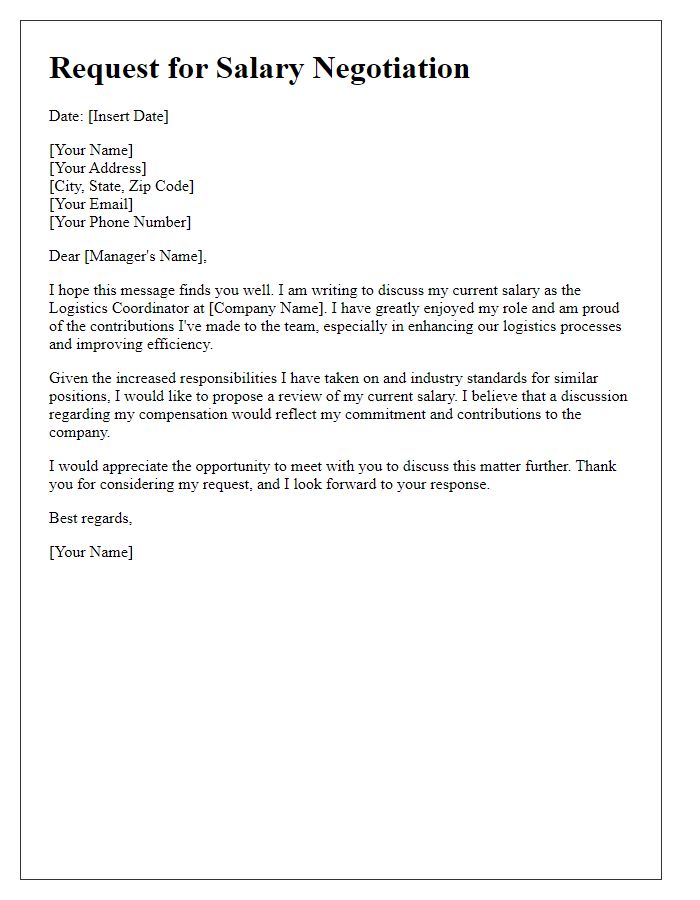
Letter template of update request for logistics coordinator application status.
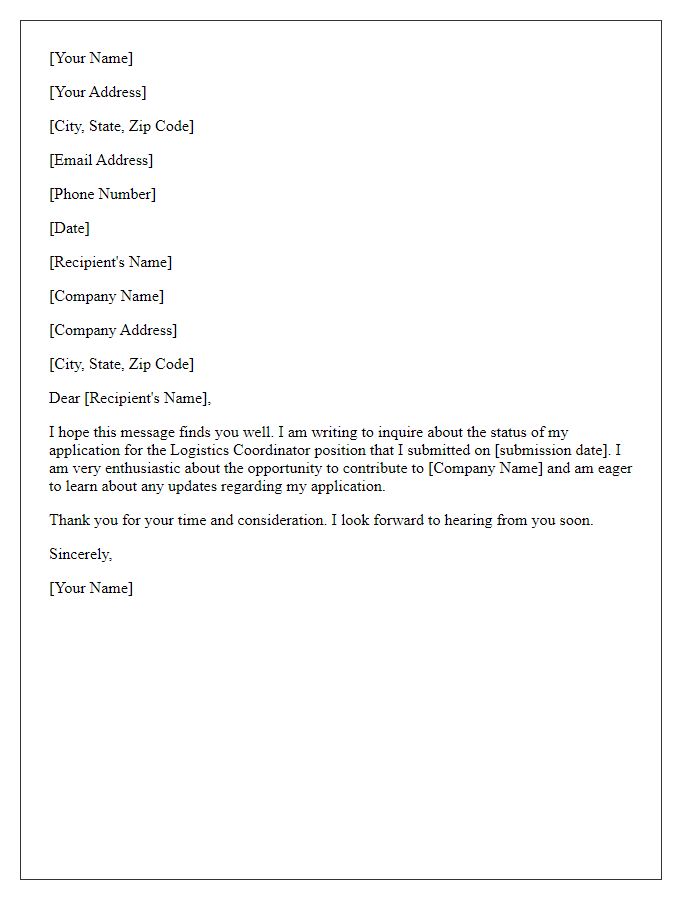

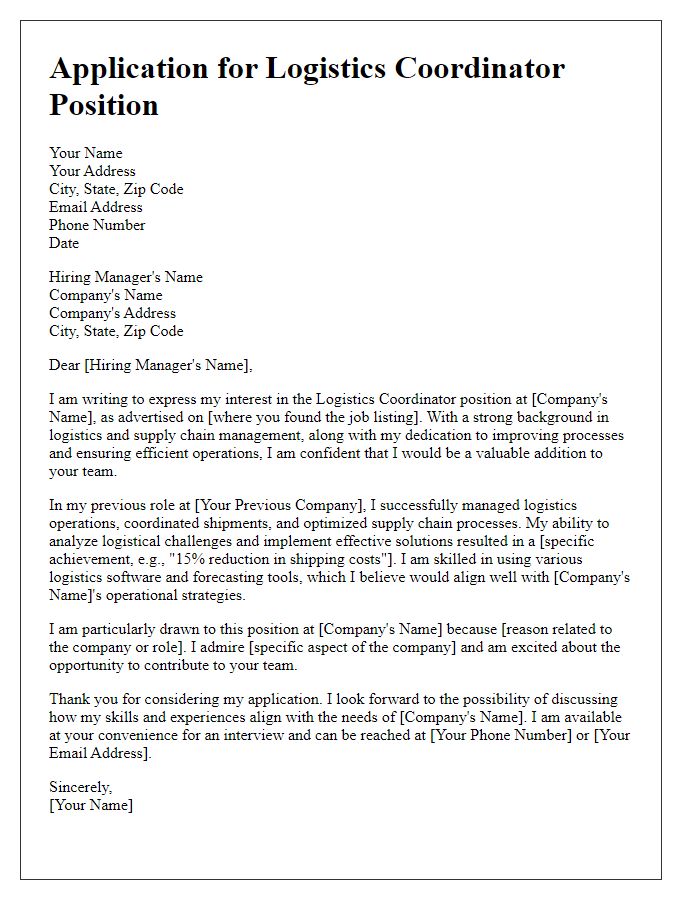
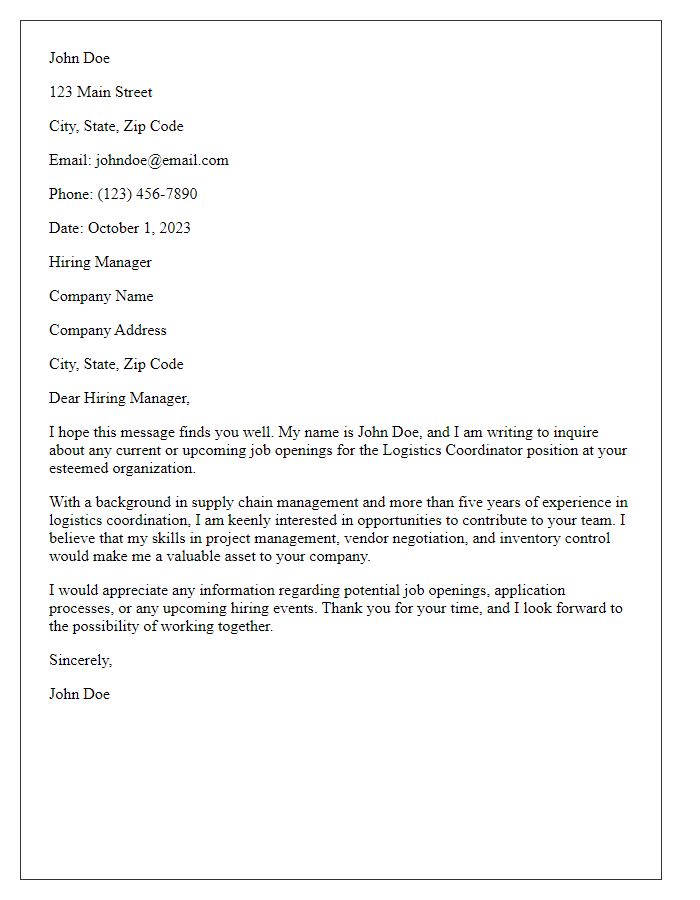
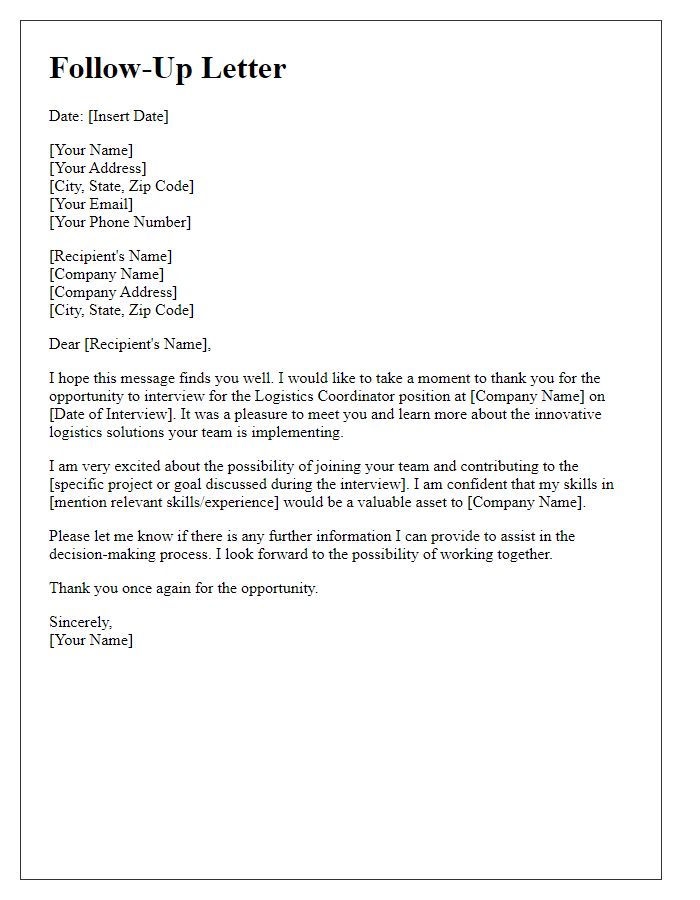
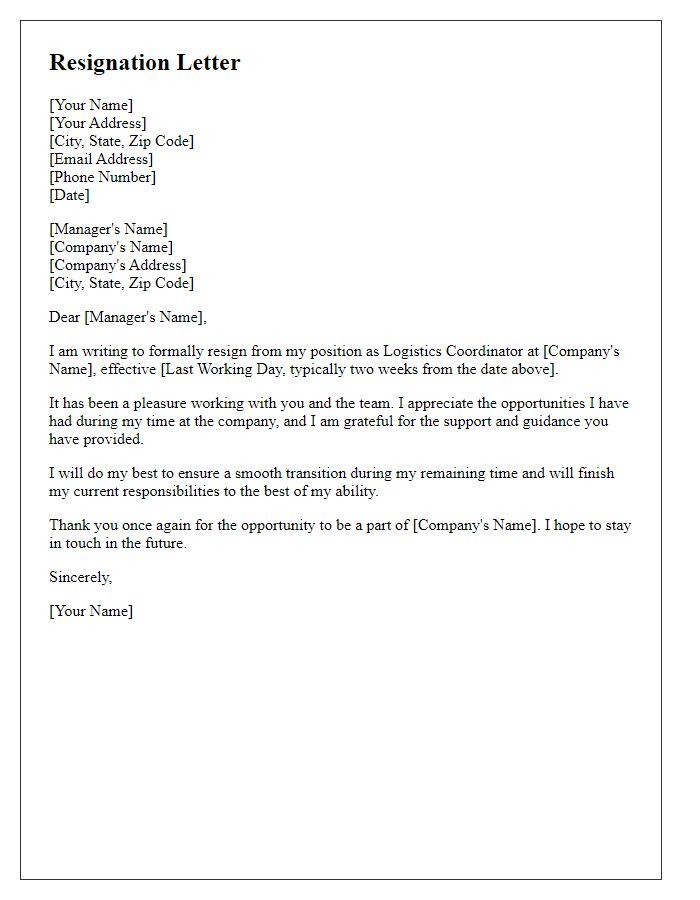
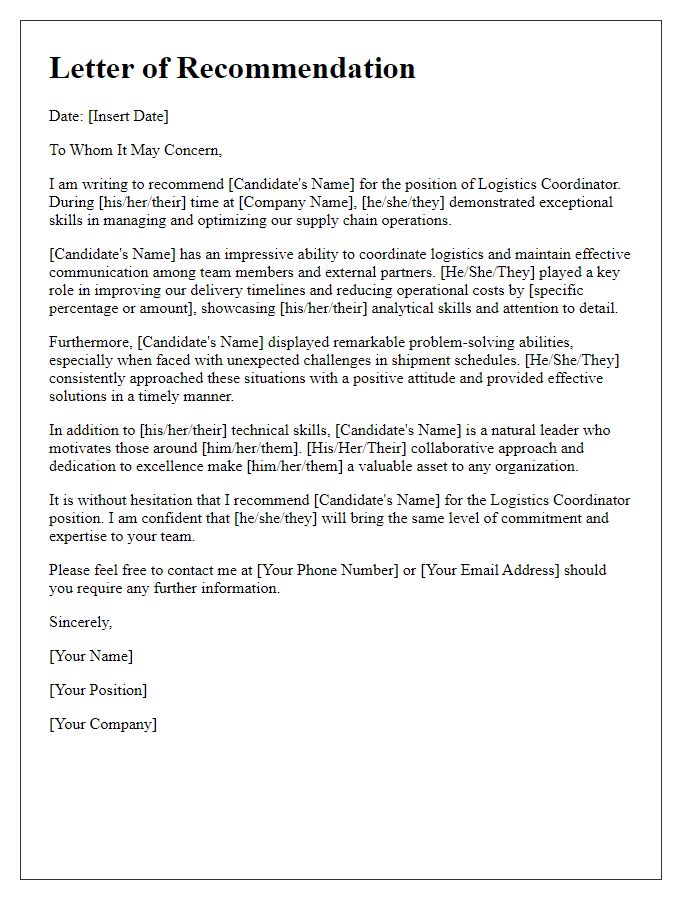
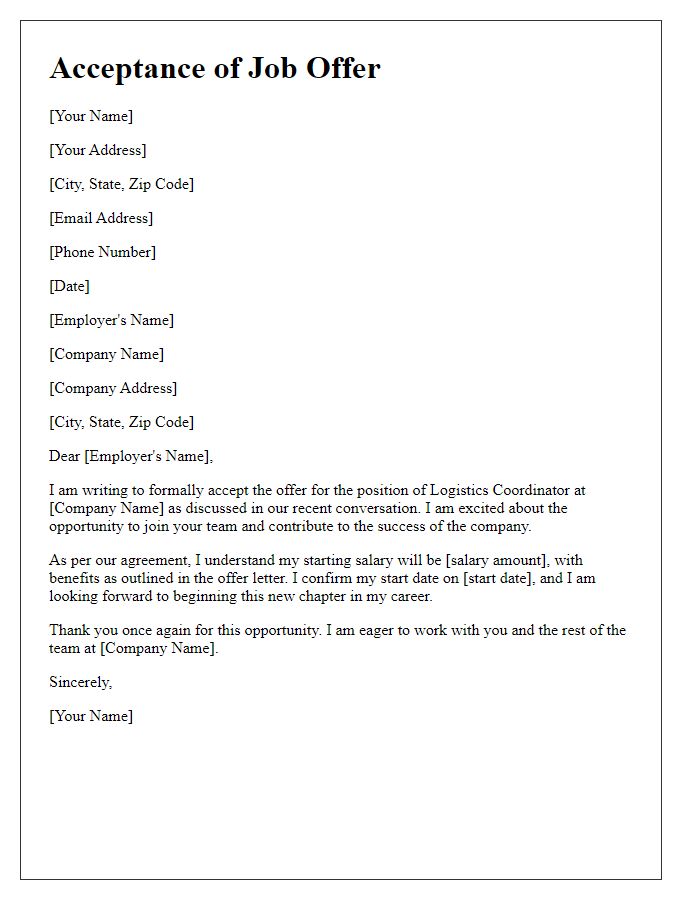

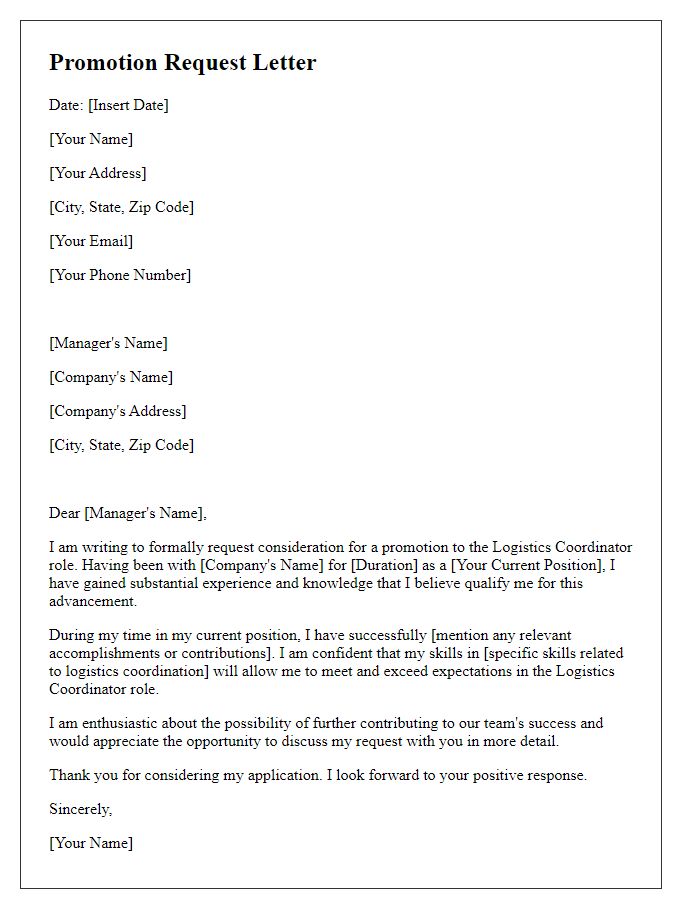


Comments